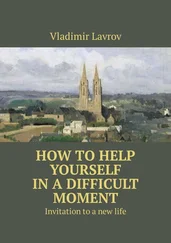The hall was enormous, an emptied-out warehouse lent to the scout troop on a weekly basis. We came in through a metal door on one end and sat under blinding fluorescent lights, occasionally using the space to run bomb drills or practice marching in formation for parades. The concrete floor was smudged with black in places where we’d lit preparedness fires; one day our scoutmaster had asked us to bring in kindling and then handed matchbooks to us in groups of three. By the end of that hour, half the troop had inhaled dangerous levels of smoke, but we were so proud of ourselves that most stayed overtime, toasting bacon on camping forks. Now, anyone could see that Vera would have none of this. Game play. Camaraderie. There were charcoal smears on the bottom of her smart little shoes, and with a shuddering foresight knew I’d find those same shoes in a charity bin a few weeks later, and be forced by my mother to take them.
“ Rebyata! Posmotritye! ” The scoutmaster stuck her cigarette in the corner of her mouth and clapped as she called us to attention. “We have a new comrade today, Verena Petrovna Volkova, so please make her feel welcome.” Fifteen pairs of eyes turned to Vera, bored into her. The scoutmaster clapped again. “Remember that we are stronger together.” In response—whether to our scrutiny or simply the idea that she might not be perfectly self-sufficient—Vera crossed her legs the other way.
We spent the afternoon learning how to track, and, more importantly, learning how to evade detection if we should ever find ourselves in the woods and facing heavy enemy fire. It wasn’t one of our more practical lessons, given that we lived in the city center, and it ended in a kittenish game where each girl was given a ball of yarn to mark her trail. The object was to walk around as much of the room as we could without crossing paths. My yarn was blue. Vera’s, red. She passed it from hand to hand, stretching her fingers away from the staticky threads and then squeezing them tight. The scoutmaster, her hair in a perpetual wave, leaned down by Vera and told her it was ok if she wasn’t very good at the activity yet. Everyone had to start somewhere. “ Poprobuytye, pozhaluysta .” Try.
As we unspooled the first of our yarn I was mostly interested in Lidya and Marta, who had taken to holding hands when they saw me, and running away. It didn’t take long, however, for me to realize how poorly they were playing the game. Every few feet their threads intersected, orange over green and then green over orange. They shrieked when they ran into other girls, and made mock guns with their forefingers and thumbs. Even their attempts to be serious led mostly to slapped wrists and volleys of useless admonition: “ You go left.” “No, you.” “No, you .” All the while, Vera walked the room’s long perimeter, occasionally hopping over a box or dodging under pieces of sharp-edged machinery. Staying unnoticed, if not unseen. I began to follow her.
In the years since, I’ve learned that there are veins in the human body so long that, if uncoiled, they’d span city blocks. City limits, even. I’ve also learned that the blood inside our bodies starts to look blue if it’s buried deep, and needs to be pumped with oxygen. It’s appropriate that the image of me trailing behind a young Vera would be one that mimics a trajectory towards the heart. The door to the hall was cracked open, and from time to time a bit of wind would lift the yarn, and then settle it back down. A red string and a blue string, side-by-side. Two little rivers, rushing.
I followed Vera for a good five minutes, careful to keep my own trail far enough away from hers that they wouldn’t be shoved together somehow and lose us the game by stupid default. She never turned around or glanced over her shoulder, so I assumed she didn’t mind. And why, after all, should one person reach the finish alone when two could go just as easily? The meeting was almost over, and my heart began to pick up speed as I imagined the scoutmaster praising us for following her directions so well. The other girls would look at me with new interest—me and Vera both—as we held our hands aloft in victory.
Vera slowed down as she approached one of the room’s far corners, and I paused too, holding my yarn in place with the toe of my shoe. Based on what she’d done so far, I expected Vera to duck around a stack of crates and continue down the length of the wall. But there must have been something else in the way, because instead she turned sharp on her heel and stared at me, her face as blank as paper. I realized the reason she’d let me follow her wasn’t charity or goodwill: she just hadn’t known I was there. Within seconds of starting the game, she forgot the rest of us existed.
“You need to go that way,” Vera said, indicating me back with the flick of her wrist. The first words she ever spoke to me. And the last for many years. When I saw she was instructing me to cross another girl’s line in order to clear her own path, I felt an unexpected resistance.
“No,” I said. “I’m winning.”
She shook her hand at me again, nodding her head in the direction she intended, but I stood firm, weaving the loose end of my yarn around and around my fingers. And then I saw a shutter go down behind Vera’s eyes. She looked at the yarn on the ground, all the various threads intersecting around the room, plus our two paths in perfect perpendicularity. A pile of wool, all across the floor. Not just her path. A dozen of them.
Vera could still have won, then. Made a few careful pivots, dodged around me, headed back to the center of the hall. But I knew that she wouldn’t. She had only been interested in playing when she thought she was making up the rules as she went. As soon as she realized she was part of something larger, and something entirely outside her design, the game lost all its value for her.
Dropping her remaining yarn into a red puddle on the concrete, Vera walked across the floor, past the circle of wooden chairs, and out the door. As she went she pushed a few of our threads around, smudging them together with everyone else’s in a hopeless tangle. Not, I thought, out of malice. She just didn’t care enough to pay attention.
The scoutmaster called us all back to our chairs and took a ceremonial puff from her cigarette. “Ok!” she said. “ Spacibo, rebyata! I’ll see you next week.”
Of course, Vera never returned to those meetings. No one mentioned her absence the following week or the week after that—probably the scoutmaster had been informed that her presence would be provisional, and was then told, more curtly, that the experiment had failed—until I began to think I had imagined her. Such a delicate girl, with her perfect, tailored uniform. Erect in her bearing, total in her indifference. I did become friends with Lidya and Marta, after a fashion, sitting in dingy teahouses together and taking up the hems of our skirts. Though we lost touch a few years later, when I was smuggled out on the orphan ship, and I have no idea what became of them or any of the others.
As for Vera and me, it would be a long time before we came face to face again.
9.
My attempts at mimicry, so successful with the Donne School teachers, didn’t go as well outside the classroom—friendship being, after all, more delicate than intellect. You can fake your way into fear or respect or passing grades, but not affection. Or at least, that’s how it seemed to me when I tried to imitate my roommate, Margaret, who was the most beloved person I knew.
I watched her carefully whenever we happened to be in the room at the same time, or whenever we met in the halls: the way she poked her friends in the ribs with delight when they said something particularly nasty, and the way she laughed, scrunching her nose up to just the degree that her few light freckles were hidden by her mirth. Her beauty, compounded by her happiness. Though I liked the freckles, actually: she was the one who powdered them to death each morning, trying to pretend they didn’t exist.
Читать дальше












